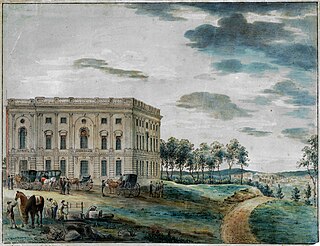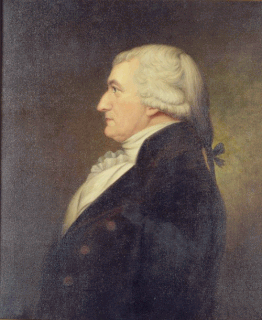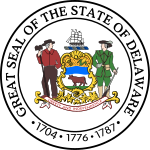
The 7th United States Congress was a meeting of the legislative branch of the United States federal government, consisting of the United States Senate and the United States House of Representatives. It met in Washington, D.C. from March 4, 1801, to March 4, 1803, during the first two years of Thomas Jefferson's presidency. The apportionment of seats in the House of Representatives was based on the First Census of the United States in 1790. Both chambers had a Democratic-Republican majority, except during the Special session of the Senate, when there was a Federalist majority in the Senate.

The 1978 United States Senate elections in the middle of Democratic President Jimmy Carter's term. Thirteen seats changed hands between parties, resulting in a net gain of three seats for the Republicans. Democrats nevertheless retained a 58–41 majority.

The 1972 United States Senate elections coincided with the landslide re-election of Republican President Richard Nixon. Despite Nixon's victory, Democrats increased their majority by two seats. After the elections, Democrats held 56 seats and Republicans held 42 seats, with 1 Conservative and 1 independent senator. These were the first elections in which all citizens at least 18 years of age could vote due to the 1971 passage of the 26th Amendment. As of 2020, this is the last cycle in which a Republican won a Senate election in New Jersey.

John Middleton "Jack" Vining was an American lawyer and politician from Dover, in Kent County, Delaware. He was a Continental Congressman from Delaware, and a member of the Federalist Party, who served in the Delaware General Assembly and as United States Representative and United States Senator from Delaware.

The 2010 United States Senate special election in Delaware took place on November 2, 2010 concurrently with elections to the United States Senate in other states as well as elections to the United States House of Representatives and various state and local elections. It was a special election to fill Delaware's Class II Senate seat, then held by Ted Kaufman, an appointee. The seat had been previously held by long-time Senator Joe Biden, who vacated it when he became Vice President of the United States in 2009.
The 1802 United States Senate special election in New York was held on February 9, 1802, by the New York State Legislature to elect a U.S. Senator to represent the State of New York in the United States Senate.
The United States Senate elections of 1804 and 1805 were elections that expanded the Democratic-Republican Party's overwhelming control over the United States Senate. The Federalists went into the elections with such a small share of Senate seats that even if they had won every election, they would have still remained a minority caucus.
The United States Senate elections of 1810 and 1811 were elections that had the Democratic-Republican Party maintain their majority in the United States Senate. The minority Federalists had gone into the elections with such a small share of Senate seats that, had they won all of the elections, they would still not have reached a majority.
The United States Senate elections of 1812 and 1813 were elections that, coinciding with President James Madison's re-election, had the Democratic-Republican Party lose two seats but still retain an overwhelming majority in the United States Senate. As in recent elections, the minority Federalists had gone into the elections with such a small share of Senate seats that if they had won every one of the elections, they would still not have controlled a majority.
The United States Senate elections of 1802 and 1803 were elections for the United States Senate which had the Democratic-Republican Party assume an overwhelming control thereof.
The United States Senate elections of 1798 and 1799 were held at the middle of President John Adams's administration and had no net change in political control of the Senate.
The United States Senate elections of 1794 and 1795 were elections that had the formation of organized political parties in the United States, with the Federalist Party emerging from the Pro Administration coalition, and the Democratic-Republican Party emerging from the Anti-Administration coalition.
The United States Senate elections of 1826 and 1827 were elections that had the majority Jacksonians gain a seat in the United States Senate.

The 1802 United States House of Representatives elections in New York were held from April 27 to 29, 1802, to elect 17 U.S. Representatives to represent the State of New York in the United States House of Representatives of the 8th United States Congress.

The 1804 United States House of Representatives elections in New York were held from April 24 to 26, 1804, to elect 17 U.S. Representatives to represent the State of New York in the United States House of Representatives of the 9th United States Congress. At the same time, a vacancy was filled in the 8th United States Congress.

The 2014 United States Senate election in Delaware was held on November 4, 2014 to elect a member of the United States Senate to represent the State of Delaware, concurrently with other elections to the United States Senate in other states and elections to the United States House of Representatives and various state and local elections.

A special election was held in Delaware's at-large congressional district on October 1, 1805 to fill a vacancy resulting from the resignation of James A. Bayard (F) upon election to the Senate. Bayard had earlier served in the House in the 5th, 6th, and 7th Congresses before being narrowly defeated for re-election in 1802 by Caesar A. Rodney, whom he, in turn, defeated in 1804.
The 1802 United States elections occurred in the middle of Democratic-Republican President Thomas Jefferson's first term, during the First Party System. Members of the 8th United States Congress were chosen in this election. Democratic-Republicans picked up several seats in both chambers of Congress, solidifying their control over the House and Senate.

The Delaware United States Senate special election for 1795 was held on March 16, 1795. The former Senator George Read had resigned to take the position of Chief Justice of the Delaware Supreme Court. Henry Latimer defeated the former governor of Delaware, governor of Pennsylvania and Continental Congressmen from Delaware and Pennsylvania by one vote.









